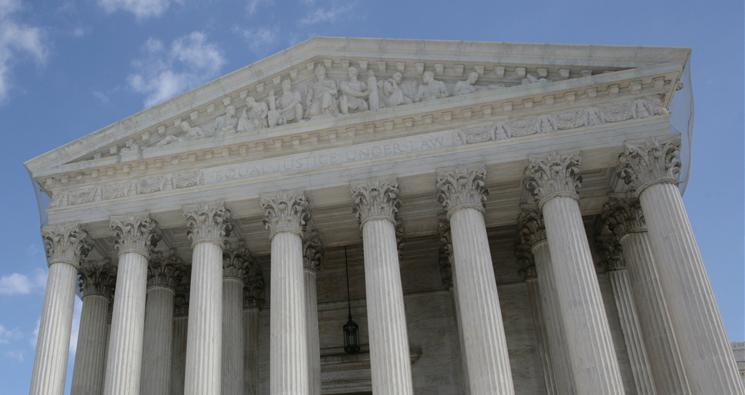HHS Mandate Challenge: Deciding Which Case(s) to Decide
Next Tuesday, November 26, the Justices of the U.S. Supreme Court will confer about a number of cert petitions that have been briefed and filed with the Court over the past few months. (A cert petition, formally called a “Petition for Writ of Certiorari,” is a request that the Supreme Court review the decision of a lower court.)
Among the petitions the Court will confer about next week are three that directly involve the HHS Mandate (the government edict that non-exempt employers provide abortifacient drugs and contraceptives in health plans, regardless of whether they have a religious objection to doing so, or pay ruinous penalties): Hobby Lobby, Autocam, and Conestoga Wood Specialties. (The ACLJ filed amicus briefs in support of Hobby Lobby and Autocam in the courts of appeal, and filed an amicus brief in support of Autocam’s cert petition on behalf of twenty-one family business owners.)
There are a number of decisions the Court could make next Tuesday regarding these petitions: (1) it can deny all three petitions and let the decisions of the lower courts stand (hardly likely); (2) it can decide to grant one or more of the petitions; (3) it can wait to decide pending further deliberation; or (4) wait to decide until other petitions involving the HHS Mandate (including one filed by the ACLJ) have been fully briefed.
No matter when the Court rules on these petitions, there is little doubt that it will ultimately grant at least one of them.
One of the most important factors the Court uses to decide whether to grant a cert petition is whether lower courts are divided over an issue of great legal importance.
In the case of the HHS Mandate litigation (which currently adds up to over 40 cases involving challenges brought by for-profit employers), the lower courts are very much divided on whose religious exercise, if anyone’s, is substantially burdened by the Mandate:
The D.C. Circuit Court of Appeals held in Gilardi (an ACLJ case) that religious owners are substantially burdened by the Mandate, but not their businesses.
The Third Circuit held in Conestoga Wood that the Mandate doesn’t substantially burden the owners or their business.
The Sixth Circuit (like the Third Circuit) held in Autocam that that neither the owners nor the businesses are burdened by the Mandate.
The Seventh Circuit (unlike any other court of appeals to rule so far), held in Korte (another ACLJ case) that the Mandate substantially burdens both the religious owners and their business.
The Tenth Circuit held in Hobby Lobby that the Mandate burdens the corporation but did not decide whether the Mandate burdens the owners.
Sound confusing? Well, it is. And this is why few doubt that the Supreme Court will decide, perhaps next week, to intervene in at least one of these cases.
As we pointed out in the Gilardi cert petition filed with the Supreme Court earlier this month:
Clearly, the lower courts are at odds with one another as to who has standing to challenge the Mandate, whose religious exercise is substantially burdened by the Mandate, and whether a secular or for-profit corporation has any religious exercise rights at all. Given these conflicting decisions, and the fact that the Mandate impacts the exercise of a fundamental liberty protected by the First Amendment, there cannot be a more compelling case or controversy warranting this Court’s intervention.
No matter when the Supreme Court makes its decision, either next week or in the weeks soon after, we’ll let you know when that decision comes down.
